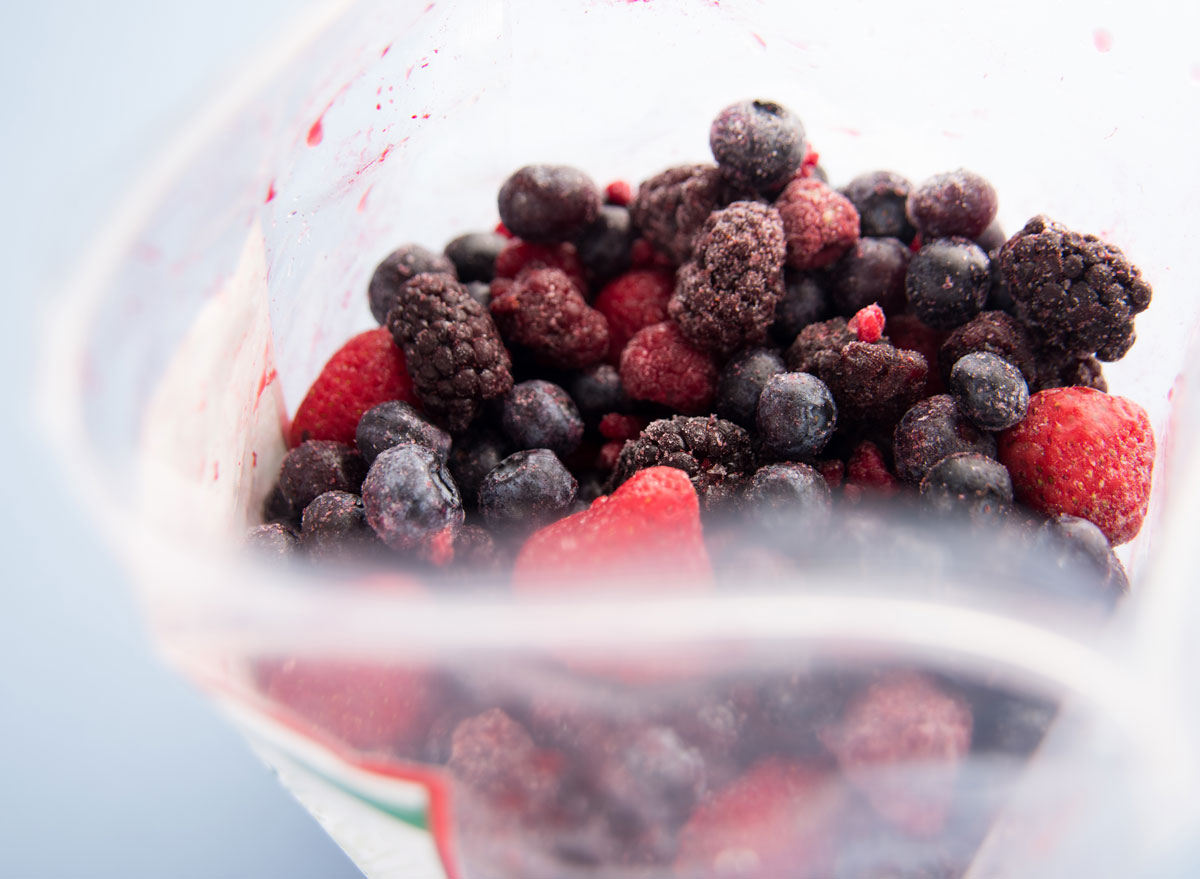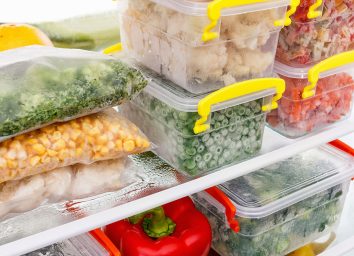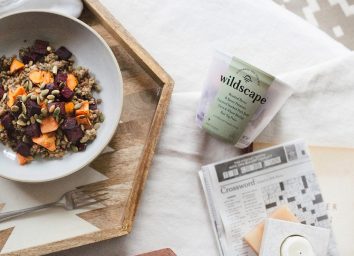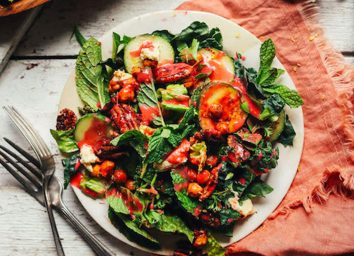Fresh vs. Frozen Vegetables & Fruit: Does it Matter?

When consuming produce, we have many forms to choose from: fresh, frozen, canned, freeze-dried, pureed, liquefied, dried, and beyond. You may be right to assume that some forms of produce are better than others based on how much they're processed; more nutrients are in intact with less processing and fewer nutrients are present when fruit is ultra-processed. However, there has been a long-standing debate over the matchup of fresh and frozen produce.
First, why are fruits and vegetables healthy?
Fruits and vegetables are filled with vitamins, minerals, antioxidants, and fiber and when consumed in large enough quantities, have the ability to reduce blood pressure and reduce the risk for cardiovascular disease and colon cancer risk.
How healthy are fresh vegetables and fruit?
When you think about how your favorite vegetable gets from the farm to your plate, you may be surprised at how many people and processes are involved. The equipment and people used to plant the seeds, tend the farm as the crop grows, harvest the produce, transfer the produce to storage while it waits to be transported to a distribution center or store, and once it arrives in the store, that produce comes in contact with employees stocking the produce and shoppers browsing the produce section.
Even once you pick your produce to take home, that food will be exposed to several different environments and people before reaching your plate. That's a lot of steps and exposure to the food you are bringing home.
According to the Centers for Disease Control and Prevention (CDC)) fresh produce accounts for nearly half of all foodborne illness in the United States. This does not automatically mean you will get sick from fresh produce at some point in your life, but when comparing it to frozen fruits and vegetables, this fact is a tally in the negative column for fresh produce.
Keep in mind cooking produce is a line of defense to kill off foodborne illness, in combination with your immune system and the acidic nature of your digestive tract.
Are frozen vegetables and fruit healthy?
When considering frozen produce, one of its main benefits that contributes to this method's healthfulness is the vegetables limited exposure to outside elements. Once picked, produce destined for the freezer is washed, blanched, packed, and frozen within hours. Now, that packaging provides a barrier between your food and the elements.
It is true that cooking vegetables causes some nutrients, like vitamin C, to deteriorate, but the blanching process used in freezing vegetables is done very quickly to minimize the loss of nutrients.
When cooking your frozen vegetables at home, you are likely to lose some micronutrients, but that would be the same for fresh produce as well. And, if you are eating your recommended five servings of produce each day, you are still likely to exceed your daily need for vitamin C despite some being lost in the cooking process. Vitamin C content of fresh and frozen food has been well documented, and some researchers have even found there to be a higher content of vitamin C in frozen produce as this nutrient can deteriorate during the storage and transport of fresh produce.
How you decide to prepare your produce matters.
Outside of foodborne illness and nutrient profile advantages and disadvantage, it is important to consider how you will be using your fruits and vegetables in deciding which form, fresh or frozen, is best for you.
Because frozen vegetables can have more water content, this may create a softer, mushier texture when cooked compared to fresh produce. If you don't mind this texture or plan to use produce in soups, smoothies, or purees, frozen is a great option.
When consuming vegetables raw, making a salad, or roasting your vegetables, fresh may be your best bet. Also, you may consider the financial benefits of frozen produce, as they are less likely to spoil and become unusable.
Conclusion
There are plenty of factors to take into account when choosing your produce. Most importantly, you must consume enough of these nutritious foods; so whichever form helps you maximize your fruit and vegetable intake will be the best option for you.








